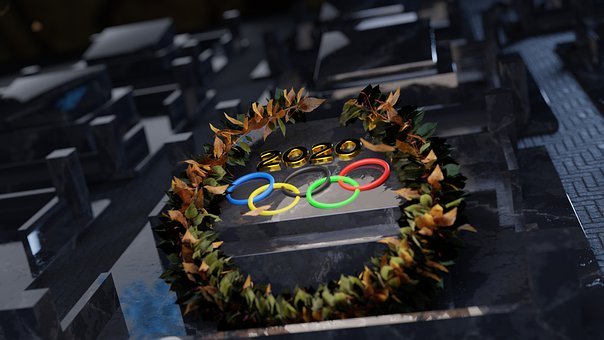By James Sutherland on SwimSwam

The 1964 Olympics were historically significant for a myriad of reasons, led by the fact that it marked the first time the greatest competition in sport was hosted in an Asian country.
Now 57 years and four Asia-based Olympics later, the Games will return to the Japanese capital after pushing through difficult circumstances in what many hope to be a beacon of light in what has been an otherwise exhausting and depressing last 16 months.
Below, we’ll take a look into the essence of what made the 1964 Olympics so special, both overall and inside the swimming pool.
Tokyo’s Return To Global Stage After World War II
Tokyo had been scheduled to host the first-ever Asian Olympics in 1940, but they had to be relocated due to the Japanese invasion of China in 1937. Ultimately, the 1940 Games were cancelled altogether due to World War II.
In a speech back in 2013, when Tokyo was pushing for the 2020 Olympic bid, (now former) Prime Minister Shinzo Abe spoke on how the country was still recovering from the war when it won the right to host the 1964 Games in May 1959.
“Tokyo was chosen to host the 1964 Olympics in 1959, just 14 years after the end of the war,” said Abe. “We were much poorer then than we are today. But Japanese back then were passionate about hosting the Olympics in Tokyo, and that passion fueled the success of the games.”
The Olympic torch in 1964 was carried by Yoshinori Sakai, born in Hiroshima on August 6, 1945—the day of the atomic bomb—to symbolize Japan’s recovery from the war.
Hosting the 1964 Olympic Games was hugely significant for Japan as it returned to the global stage as a peaceful, economically confident nation.
A Hugely Successful Games – On Site & Television
Over two million tickets were sold to the Games, with the public attending all sporting events both indoors and outdoors, along with the Opening and Closing Ceremonies.
Almost 85,000 spectators attended the sold-out Opening Ceremony, while the marquee sports also saw packed-out arenas and stadiums: 519,000 spectators for athletics, 616,000 for football, 154,350 for swimming and diving, 66,621 for basketball, and 47,120 for judo, according to Olympics.com.
However, an even greater impact was made on television, as the Games marked the first-ever worldwide satellite broadcasts, enabling hundreds of millions of spectators to follow along live from all around the world. An estimated 600 to 800 million people watched the Games on TV.
The growing middle class’ rush to buy television sets to watch the Games led to the term “Olympic economy” in Japan. Tokyo also cleaned its streets, rivers and planted greenery for the 1964 Games, a legacy that has continued to live on in the city.
The Competition
The host nation had a successful showing at the Games, winning 16 gold, five silver and eight bronze medals to finish third on the medal table, trailing the United States and the Soviet Union.
Abebe Bikila of Ethiopia became the first athlete to win the marathon twice, and star Soviet gymnast Larisa Latynina added to her record medal haul with two gold, two silver and two bronze medals, bringing her career tally to 18 Olympic medals. That mark stood until Michael Phelps surpassed it in 2012.
In the pool, the U.S. dominated the medal table with 13 gold and 29 total medals, with Australia the only other nation winning multiple golds.
Australia’s Dawn Fraser etched her name in history by winning the women’s 100 freestyle, making her the first swimmer to win the same event at three Olympic Games. In the years since, only Hungarian Krisztina Egerszegi (women’s 200 back, 1988-96) and Phelps (men’s 100 fly, 2004-12; men’s 200 fly, 2004-08, 2016; men’s 200 IM, 2004-16) have been able to join that list.
Fraser added a silver in the women’s medley relay, brining her Olympic tally to eight medals in a career that spanned three Games.
American Don Schollander won four gold medals in Tokyo, setting a world record in the men’s 400 freestyle (4:12.2), an Olympic Record in the 100 free (53.4), and anchoring both world record-setting men’s 400 and 800 free relays.
Three American women won multiple golds, led by 15-year-old Sharon Stouder who topped the podium in the 100 fly (world record of 1:04.7), the 400 free relay (world record) and the 800 free relay (Olympic Record). Stouder added a fourth medal, a silver, behind Fraser in the 100 free.
Read the full story on SwimSwam: The Last Time Tokyo Hosted The Games: 1964 Olympic Retrospective